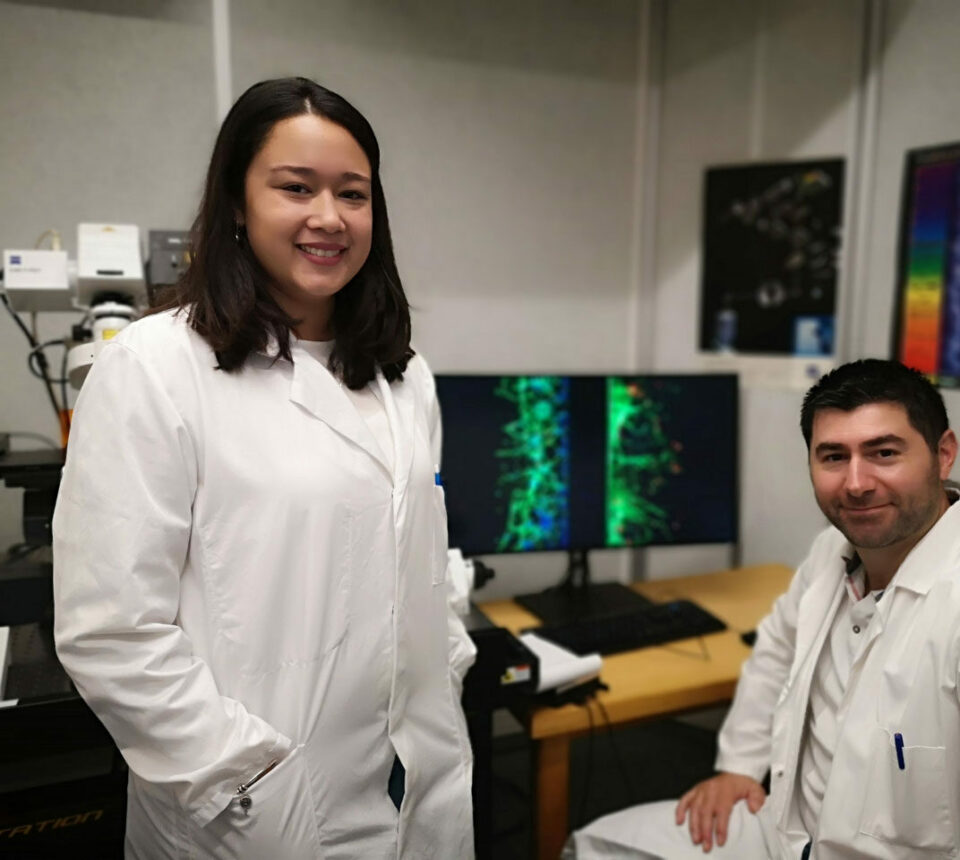Sarah Colombani, FRM Award winner: "This recognition will stay with me throughout my career."
At the age of 24, Sarah Colombani has just been awarded the Jeanne Philippe Beziat Prize by the Foundation for Medical Research (FRM). A doctoral student at the University of Montpellier in the Physiology and Experimental Medicine of the Heart and Muscles laboratory, she is beginning her thesis in cardiology under the supervision of Albano Meli and Alain Lacampagne. Interview.

Winning an award when you've only just started your thesis is a bit surprising. What does the Jeanne Philippe Beziat Award recognize?
That's right, I started my first year of doctoral studies just two weeks ago. The Jeanne Philippe Beziat Prize rewards young doctoral students working in the field of cardiology. The FRM jury evaluated both the doctoral student's application and the thesis project itself.
It's a great start. What does this mean for you in terms of recognition and opportunities?
First of all, when you're just starting out, it puts a bit of pressure on you to aim high. Not everyone gets a cardiology award, and being recognized by the Foundation for Medical Research is extraordinary. I think this recognition will stay with me throughout my career. Secondly, it gives the laboratory visibility. It's a great opportunity.
You received your award during a grand ceremony in Paris. How did you find the experience?
I had never had to speak in front of so many people before, so yes, it was really stressful! Fortunately, the ceremony was designed to make us feel special. We were mixed in with leading researchers who had received research awards and scientific prizes. There were important figures in attendance, including the Minister of Higher Education and Marina Carrère D'Encausse, who presented me with the award.
Research cannot be done without money. Is an award a real financial boost?
Of course! The prize is worth €102,600, which is quite substantial. I suppose it will both fund my project and pay me during my thesis. It's a real bonus for the laboratory.
Could you tell us a little about your project?
Doctors Alain Lacampagne and Albano Meli, who are my thesis supervisors, recently discovered that a mutation in a channel—which allows calcium to enter the heart and thus causes the heart to contract—involved in a heart condition called CPVT (catecholaminergic polymorphic ventricular tachycardia) was also associated with neurological disorders such as epilepsy. In other words, for the first time, they have shown that this mutation could, upstream, have an effect on neurons.
So you're going to continue this work?
My thesis focuses on a patient who has this CPVT and also has autism spectrum disorder. In this specific case, we want to see if the neurons are mutated, and if so, whether they have an effect on the heart and vice versa. This thesis is possible thanks to a fairly recent and novel system: microfluidic chips. The ultimate goal is to study the interaction between neurons and the heart in neurocardiological disease and to see which treatment is effective at both levels.
You started your thesis at the age of 24, which is quite an impressive achievement. When did you realize that you wanted to do research in cardiology?
Inmy third year of my bachelor's degree in animal physiology and neuroscience, I took cardiology classes that fascinated me. To learn more, I enrolled in a master's program in experimental and regenerative medicine with Professor Jean-Yves LeGuennec, where I discovered innovative therapies and stem cell research. It's truly incredible! When Dr. Albano Meli suggested this topic, which combined cardiology, stem cells, and innovative therapies, I knew it was exactly what I wanted to do.
Did you complete all your studies at the University of Montpellier?
Yes, I studied in Montpellier, but I was born and raised in Morocco. I arrived after graduating from Descartes High School in Rabat in 2013. I started out studying medicine because many people around me and in my family work in the medical field, but as the year went on, I realized that fundamental science was more suited to me. So I went to the Faculty of Sciences, and that was that! My studies came together quite naturally.
And how do you see your future?
I've just started my thesis, so I'm not going to rush things, but I know that after that I'll definitely do a postdoc. I'd like to go to a lab in the United States that works on stem cells and heart disease using innovative therapies, so that I can perfect my experimental techniques. I hope to come back with this expertise for a second postdoc in France and, of course, take the competitive exams and become a researcher here.
